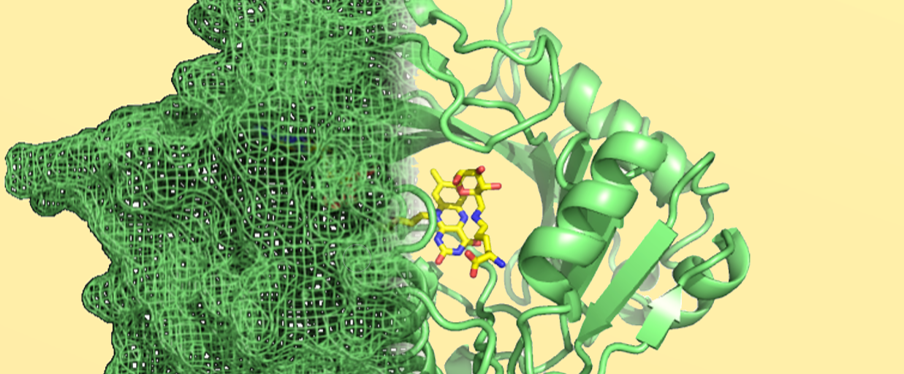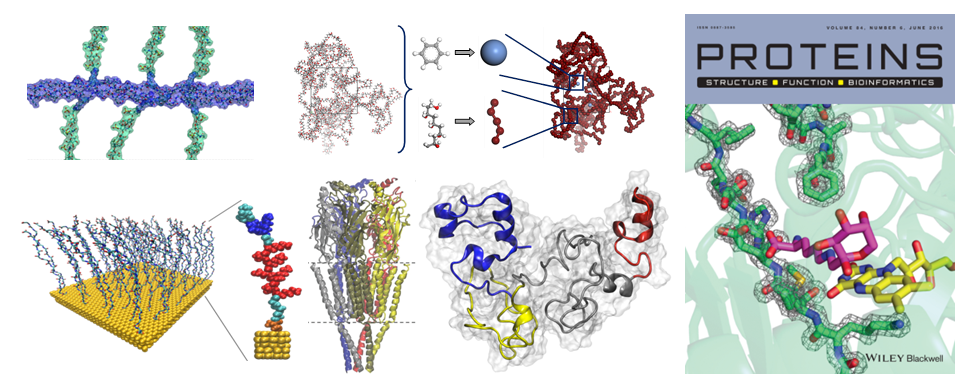
Biomolecular Engineering Lab

The Biomolecular Engineering Lab focuses on the investigation, design and engineering of biological molecules and biomaterials by using molecular simulations. Current research activities include:
Biomolecular Modelling. Molecular modelling provides a “virtual microscope”, which allows us to investigate the dynamic properties of biomolecules in a way which is not possible in laboratory experiments. We use computational simulations to study the structure and properties of proteins and other relevant biomolecules in order to predict their structure when inaccessible with experiments, to investigate key biophysical properties, or to understand the molecular mechanisms of diseases.
Biomolecular Design. Biomolecular rational design refers to the use of computer algorithms to determine the optimal biomolecular sequence and structure to allow a particular molecular task, e.g. binding a substrate. We develop bioinformatics tools to guide atomistic design simulations in the search for new biomolecular structures and functions. We have used this strategy to design new biomolecules and enzymes. Experiments in collaborating laboratories are then used to validate our design and computational methods and to highlight areas for improvement in the underlying algorithms.
Engineering of Nanobiomaterials. Molecular simulations offer a valid strategy to engineer novel nanobiomaterials, limiting the cost- and time-consuming laboratory trial-and-error procedures. In our lab we successfully contributed to the engineering of the transport properties of biopolymeric membranes, the design of biocompatible self-assembling peptides to be used in cell culture, and the development of polycationic polymers as non-viral vectors for gene delivery.